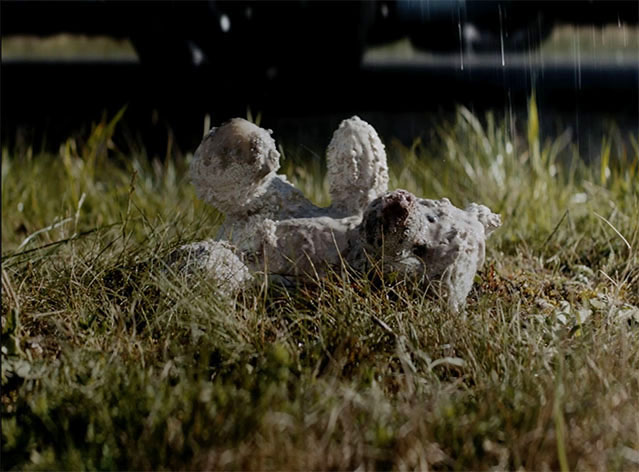Night cap with Acide (Acid)
An interview with Just Philippot, director of Acide (Acid)
What inspired you in your writing of Acide?
For Acide, I was invited as a screenwriter in a writing residence launched by SO FILM, CANAL+ and the CNC whose goal is to promote a “new way of writing” in groups. So, there were five screenwriters in this residence who were given carte blanche to write a script for genre cinema. As I’m not exactly a specialist in genre cinema, I arrived with no ideas or projects in mind. So, I delved back into my traumatisms as a young viewer. I thought about The Fly and Robocop. I thought about the collective hysteria during the killing scenes in Come and See… The destruction of the body, transformation and mutilation are the themes that make me terribly uneasy. To write such a project, I had to let this unease guide my script. In short, I wanted to write a story that I didn’t want to see. The other narrative force was my daughter’s birth and the perpetual question that I asked myself watching the news: what kind of world am I going to leave for my child? The worst story imaginable would be to ask her to become an adult at 8 years old because no one understood the ecological drama that continues to develop and that one day soon is going to hit us square in the face…
Are you aware of the question of climate refugees? Did this problem play a role in your thinking?
Of course… this problem is part of my great questioning of our permanent blindness, of the blindness of our leaders and of our economy. How is it still possible today that we don’t systematically put in place ecological and social rules that would resolve the situation that we are currently sinking into? And to allow a more just sharing of the resources that remain? This form of contempt or of incompetence made me want to give the film a very aggressive tone. I didn’t want Acide to be “a cool movie with good effects”. No! I wanted Acide to be a serious project. I wanted to scare people and to cause pain. This is not what drives me in life, but for this film and for this subject, I had to be as sincere as possible. We can’t leave a film on this subject and leave saying, “Wow! That was cool!”. I wanted to accomplish the exact opposite.
Why did you choose to include a child among your characters in flight?
The child is the most precious and the most fragile thing in our societies. In my story it is also the heaviest of weights. First and foremost, Acide is a story about family and the connections that unite us. The innocence of this child who doesn’t seem to understand what is going on reflects a fragile image back on the parents, who sink deeper into a lie that they believe is protecting their child. At every moment, fear makes them waver. The father and mother are no longer the same, and are capable of the worst to save themselves.
It’s also the best way to frighten the viewer, by putting him in a very uncomfortable zone. To see characters that are not heroes, but normal people capable of cracking up, it’s a powerful way to create a connection between the viewer and the action taking place. Equal to equal, we dare ask ourselves, “What would I have done in his place?”
What do you think of the way in which the environment and our relationship with Nature as human beings is managed?
I think that on a large scale, it’s absolute rubbish. I think we should be ashamed of our relationship with nature. In The Happening, Shyamalan created the only villain in the history of cinema that was well in the right to be angry against the entire planet.
Did you conceive Acide as a whole, or as part of a story?
I conceived Acide as a straight line, a final stretch that had to end with a statement.
Do you have plans to address the theme of the future of our planet and of humanity in any upcoming films?
Yes and no… In fact, my wife and I are working on a series about a place in France that has just been labeled “the most polluted place in France”. Throughout this entire story, we would like to succeed in exposing the crazy situation in which we all find ourselves. Pollution, even deadly, isn’t that serious… As long as we have a bit of money to live on…
What sort of freedom would you say the short format allows?
I work on the assumption that the short film is meant for trying something out. In this film, I wanted my characters to run at the beginning of the film. For six days, and despite all the technical and practical problems due to the short film budget, we ran behind our actors. I think it would have been more difficult if that had lasted over several straight weeks…
If you’ve already been to Clermont-Ferrand, could you share with us an anecdote or story from the festival? If not, what are your expectations for this year?
I came about 10 years ago to participate in a pitch session in English with some European producers. That day, I regretted not having studied more in high school… the attendees as well…
Acide is being shown in the National Competition F3 and in the CANAL+ collection session.








